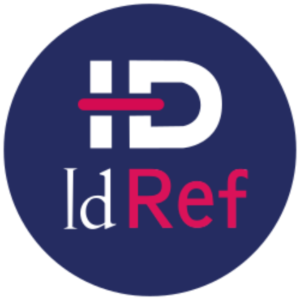
Quentin PEREZ
- Diversity-centric Software Engineering (DiverSe)
Présentation
Maitre de Conférences INSA Rennes, recherche @ équipe Diverse - IRISA, Université de Rennes 1, Inria, CNRS Depuis 2023, je suis enseignant-chercheur en Informatique à l'INSA Rennes. J'effectue mes recherches au sein de l'équipe DiverSE rattaché au laboratoire IRISA/Inria de Rennes en France. Mes sujets de recherche concernent : Actuellement, je travaille sur la consommation énergétique de la chaîne d'approvisionnement logicielle (systèmes d'intégration et déploiement continue ainsi que gestionnaires de build) utilisés dans la boucle DevOps. Ces systèmes sont intéressants à étudier en raison de leur utilisation massive et fréquente dans monde du DevOps. De plus, ces systèmes permettent des automatisations visant à réduire les couts, délais et erreurs liées aux développement et déploiement des logiciels ce qui rend leur présences dans les projets quasiment indispensables. Les chaînes d'approvisionnement utilisent divers outils pour construire des logiciels, et leur grande configurabilité leur confère un statut particulier dans le monde du logiciel. Mes recherches consistent à trouver des solutions pour réduire la consommation des outils DevOps et à fournir aux développeurs une perception et une évaluation de la consommation énergétique des logiciels dans la boucle DevOps. Pour ce faire, j'utilise des approches issues du Génie Logiciel empirique pour collecter et évaluer les outils utilisés dans le monde DevOps à grande échelle. J'ai obtenu mon doctorat en 2021 de l'IMT Mines Alès (France) sous la supervision de Christelle Urtado et Sylvain Vauttier. Pour plus d'informations, consultez mon site personnel : https://qperez.github.io/
Ou contactez moi :-) : quentin.perez@irisa.fr
Domaines de recherche
Publications
Publications
|
|
Dataset of open-source software developers labeled by their experience level in the project and their associated software metricsData in Brief, 2023, 46, pp.108842. ⟨10.1016/j.dib.2022.108842⟩ |
|
|
Users Pay Twice: The Hidden Energy Cost of Web AdvertisingWWW 2026 - ACM Web Conference, Apr 2026, Dubai, United Arab Emirates. ⟨10.1145/3774904.3792414⟩ |
|
|
Modeling Sampling Workflows for Code Repositories23rd International Conference on Mining Software Repositories (MSR ’26), Apr 2026, Rio de Janeiro (BRAZIL), Brazil |
|
|
Evaluating the Energy Profile of Tasks Managed by Build Automation Tools in Continuous Integration Workflows: The Case of Apache Maven and GradleICT4S 2025 - International Conference on Information and Communications Technology for Sustainability, Jun 2025, Dublin, Ireland. pp.1-11, ⟨10.1109/ICT4S68164.2025.00011⟩ |
|
|
On the Effect of Feature Reduction on Energy Consumption: An Exploratory StudySPLC 2025 - 29th ACM International Systems and Software Product Line Conference, Sep 2025, A Coruña, Spain. pp.1-11, ⟨10.1145/3744915.3748463⟩ |
|
|
Model-Based DevOps: Foundations and ChallengesMODELS-C 2023 - ACM/IEEE International Conference on Model Driven Engineering Languages and Systems Companion, Oct 2023, Västerås, Sweden. pp.429-433, ⟨10.1109/MODELS-C59198.2023.00076⟩ |
|
|
MLinter: Learning Coding Practices from Examples-Dream or Reality?30th IEEE International Conference on Software Analysis, Evolution and Reengineering (SANER), Mar 2023, Macao SAR, Macau SAR China. ⟨10.1109/saner56733.2023.00092⟩ |
|
|
Déploiement dirigé par les modèles de jumeaux numériques dans les environnements intelligentsHUT LaConf 2022 - L'interdisciplinarité au service des environnements intelligents, Nov 2022, Montpellier, France |
|
|
A software engineering point of view on digital twin architectureETFA 2022 - IEEE 27th International Conference on Emerging Technologies and Factory Automation, Sep 2022, Stuttgart, Germany. ⟨10.1109/ETFA52439.2022.9921617⟩ |
|
|
Mining Experienced Developers in Open-source ProjectsENASE 2022 - 17th International Conference on Evaluation of Novel Approaches to Software Engineering, Apr 2022, Online, France. pp.443-452, ⟨10.5220/0011071800003176⟩ |
|
|
Towards Profiling Runtime Architecture Code Contributors in Software ProjectsENASE 2021 - 16th International conference on Evaluation of Novel Approaches to Software Engineering, Apr 2021, Online, United States. pp.429--436, ⟨10.5220/0010495804290436⟩ |
|
|
Bug or not bug? That is the questionICPC 2021 - 29th IEEE/ACM International Conference on Program Comprehension, May 2021, Online, France. pp.47--58, ⟨10.1109/ICPC52881.2021.00014⟩ |
|
|
An Empirical Study about Software Architecture Configuration Practices with the Java Spring FrameworkSEKE: Software Engineering and Knowledge Engineering, Jul 2019, Lisbonne, Portugal. pp.465-468, ⟨10.18293/SEKE2019-202⟩ |
|
|
Model-driven deployment of Digital Twins for Smart Environments - The HUman at home projecT case studyJournées nationales du GDR GPL 2022, Jun 2022, Vannes, France. , 13, 2022, Actes des journées du GDR GPL 2022 |
|
|
A Software Engineering Approach to Digital Twin Architecture : The HUman at home projecT and Twin Cooperation of roBot and human project case studiesETFA 2022 - IEEE 27th International Conference on Emerging Technologies and Factory Automation, Sep 2022, Stuttgart, Germany. , 2022 |
|
|
Pull Requests Integration Process Optimization: An Empirical StudyHermann Kaindl, Mike Mannion and Leszek A. Maciaszek. Evaluation of Novel Approaches to Software Engineering, 1829, Springer, pp.155-178, 2023, Communications in Computer and Information Science, 978-3-031-36596-6. ⟨10.1007/978-3-031-36597-3_8⟩ |
|
|
Software Frugality in an Accelerating World: the Case of Continuous Integration2024 |
|
|
Gestion des contributions architecturales dans les projets logiciels : Métriques, analyses empiriques et apprentissage machineGénie logiciel [cs.SE]. IMT - MINES ALES - IMT - Mines Alès Ecole Mines - Télécom, 2021. Français. ⟨NNT : 2021EMAL0011⟩ |


